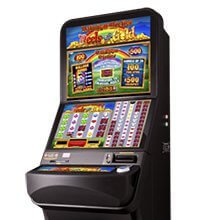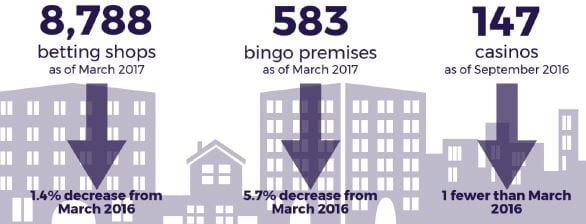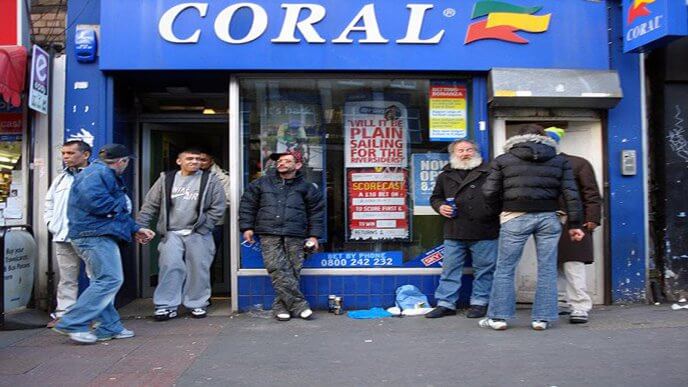
Triennial Review Gambling
- Gambling triennial review highlights the problems of excessive gambling on the high street
- Stake decrease guaranteed, and could be as low as £2
- A 12 week consultation will decide whether to limit the stakes to £2, £20, £30 or £50
Gambling Triennial Review
UPDATED 20/03/2018
The Gambling Commission has suggested a maximum stake of £30 per game on the fixed odds betting terminals, which has dismayed many campaigners who were hoping for a maximum limit of £2 per game. It also appears as though the Gambling Commission has failed to address the speed of each game, and the ease at which you can repeat a bet. The current limit is one spin on bookies roulette every 20 seconds, at a maximum of £100 a spin (£300 per minute!). The new suggestion will take that down to a maximum of £90 a minute, which is still incredibly high. Revenue from FOBT’s generated £1.8b in tax revenue last year.
Although the Gambling Commissions review are only guidelines, it is likely the government will take their advice and implement a maximum of £30 per game. It is likely that slots will be restricted to a maximum of £2 per game.
The long overdue gambling review was publish at the end of October 2017. The government has finally taken action and confirmed that stakes will be lowered, and although it is a certainty, the actual maximum price per play is yet to be decided. What follows is a 12 week consultation with various gambling industry figures to decide on the final outcome. The Department for Culture, Media and Sport is consulting on whether to limit players stakes per game to £50, £30, £20 or £2.
A £50 limit would be pointless, as the FOBT’s (fixed odds betting terminals) are effectively limited to £50 already. The high stakes have been opposed by all opposition political parties, many of which campaigned for a £2 maximum limit.
Sports minister Tracey Crouch said of the review: “This consultation brings forward a package of proposals which responds to strong evidence and public concerns about the risks of high stakes gambling on the high street, with the aim of enhancing player protections on gambling machines that enable high rates of loss in short periods of time.”
The fixed odds betting terminals first made an appearance on British high streets back in 2001 when tax laws were changed. A further liberalisation of gambling laws in 2005 created an explosion in the number of betting terminals and bookmakers on the high street, many of which are clustered in poor neighbourhoods with high unemployment. There are now an incredible 34,000 FOBT’s across the UK, with an estimated 1.5 million people having used them.
Quick Stats
- First launched in 2001, FOBT numbers exploded following a relaxation of gambling laws in 2005.
- Fixed odds betting terminals, classed as B2 gaming machines have a maximum prize per game of £500.
- Players can currently spend £100 every 20 seconds.
- There are 34,000 FOBT’s across the country.
- High Street North in Newham, East London has 18 betting shops, the highest in the UK. It has 80 in the borough as a whole.
- There are around 9000 betting shops in the UK.

Understandably, as they are paid for by the gambling industry, the Association of British Bookmakers (ABB) said a cut to £2 stake would cost 20,000 jobs. However, they wouldn’t be facing this problem if they hadn’t opened up row upon row of betting shops on the same street.
Although the fixed odds betting terminals have been the main subject of the gambling review, the report has also covered online gambling, with proposals to tighten up advertising, as well as leading gambling industry figures supporting an advertising campaign to target problem gamblers.
Seaside arcades, the original source of many problem gamblers have also come under the spotlight. The UK is the only country in the world that allows children to gamble. The £5 jackpots, which are often by-passed by the programmers to make games that ‘streak’ for up to £70, could be banned outright. Although such a ban would also effect the family friendly 2p pusher, as they fall under the same gambling category.
Additionally, the online gambling industry has been told to tidy up its act with regards to how it promotes its gambling products. Any slot machines that can potentially appeal to children have been banned, this includes slots such as Jack and the Beanstalk and Wolf Cub. Free play slots are soon to be curbed without age verification first. Known as ‘Gate Checks’, a debit or credit card will be required to confirm that the player is over 18.
Gambling Stats
- Online gambling is the largest gambling sector in Britain (29%).
- There are 1721 arcades in Britain and a little under 600 bingo premises.
- Many (but not all) online casino streamers use ‘fake’ money provided by the casinos to promote their product.
- There are over 100,000 people employed by the gambling industry in some way.
- There are 176,000 gaming machines (fruit machines) across Britain.
This article will be updated once more figures and the final stake outcomes are known.
Self-exclusion from more than one bookmaker/betting shop in your area:
To self-exclude from more than one shop or a number of different companies in your area, call 0800 294 2060.

Triennial Review Slot Machines and Roulette
UPDATE April 2017: With the sudden snap election not long ago, the gambling triennial review has been delayed until October 2017. This means that any changes to the maximum stakes, spins per minute and advertising rules will not come into effect until October 2018.
With the Triennial Review approaching, a long-awaited look at the stakes, prizes and effects of the fixed odds betting terminals is coming under close scrutiny. The most likely conclusion will see a reduction in stake from the current £100 per spin down, to £10 per spin. This will likely go along with a slower game which currently allows for a spin on bookies roulette every 20 seconds.
Bookies roulette has been around for a long time, approaching 17 years. In that time, the style of the fixed odds betting terminals (FOBT’s) has changed, with improvements in loading times, increased game capacity and an ever changing and growing list of roulette games and slot machines. The fixed odds betting terminals can be found in Ladbrokes, Coral, William Hill and Betfred, each of which host around 50 games per terminal, with four betting terminals per shop. The most common and popular games are the various types of roulette, followed closely by the constantly changing choice of slot machines.
Although overall you have better odds on the majority of roulette games compared to the FOBT slots, the speed and stake at which you can play often results in speedier losses or quick profits. The high turnaround also results in number and colour combinations that would take longer to appear in land based casinos or live roulette games online.
As the bookies prepare for the Triennial Review, many players will have noticed a significant decrease in the RTP of the slot machines, down to as low as 89%. Higher RTP’s result in more features and more wins, more often. The tightening up of the FOBT slots is a pre-emptive move by the betting industry to prepare for not only lower stake limits, but also multiple shop closures as the Triennial Review takes into consideration the social impact of the areas that house several betting shops.
If the Triennial Review results in the decrease of stakes to £10 or £2 per game, the slot machines would have no problem, and would be in line with the rest of the arcade and bingo industry. The majority of slot machine players also enjoy the games on lower stakes. Roulette might have bigger issues, especially if they are limited to £2 per spin; we would likely see 5p chips and more bonus types of roulette where the ‘house’ can increase its odds whilst offering the chance to win the jackpot amount. £10 per spin on roulette wouldn’t be too much of a problem as many players rarely peak above that amount per spin.
A look at the social impact of the bookies is long overdue, and the stakes which currently stand at £100 every 20 seconds have no place on the high street. The future of the FOBT’s may lie with a membership style system, more bonus roulette games and an increase in the amount of slots on offer, it is also likely that the betting industry will continue to push the limits on the RTP’s offered, pushing more people online where the payouts are significantly higher.